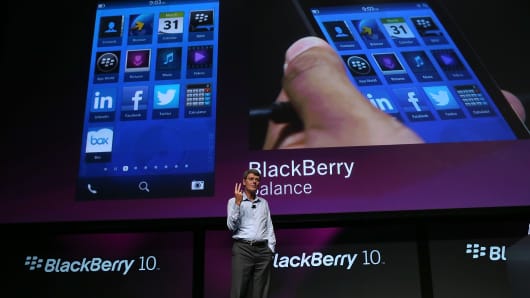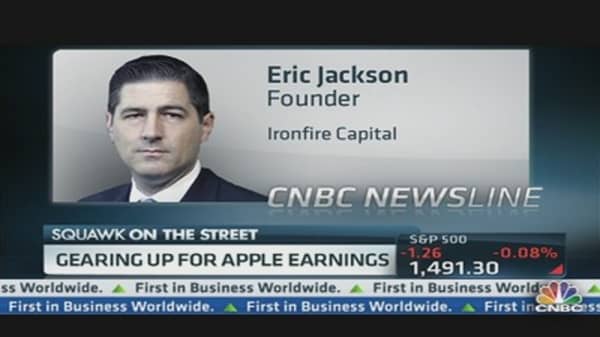With the impending arrival of its much hyped BlackBerry 10, Research In Motion is back on the map. Yet the question most observers appear to be asking is: is it too little, too late?
RIM was once a household name among smartphone makers, particularly in government and corporate sectors. However, years of neglect and technology problems caused the company to suffer a precipitous decline in both market share and prestige, allowing competitors like Apple and Samsung to leapfrog over.
Now, ahead of what most observers view as a make or break product launch, the BlackBerry maker's stock recently skyrocketed to a new 52 week high above $18 as buzz over the new phone reached a crescendo. Yet in a move that may reflect growing caution over prospects for the BlackBerry 10, the stock suffered an eight percent plunge on Monday.
It remains to be seen whether the BlackBerry 10 can permanently transform RIM's fortunes into more than just a momentary stroke of good luck. In a smartphone market dominated by Apple's iPhone and Samsung's Galaxy, skeptics wonder if a diminished BlackBerry brand can reestablish itself in a fickle marketplace.
(Read more: RIM CEO: We'll Do a 'Muhammad Ali Thing in Round 8'.)
At least for now, however, the battered company has reinserted itself into the digital war, giving investors a reason to believe RIM could see a revival. It also comes just as the market appears to be falling out of love with Apple, one of RIM's fiercest competitors.
"If you can stomach …the volatility, I think you'll be better rewarded this year if you stick it out," Eric Jackson of Ironfire Capital, said recently on CNBC.
Despite comparisons to wilted Nokia and the now non-existent Palm, Jackson notes that RIM still has more than 80 million loyal subscribers who may be inclined to buy the BlackBerry 10.
"If only about a third of them buy this new phone, it will be a home run, Jackson said, adding that the stock could easily double to levels above $30 by year's end, even amid head-spinning volatility. "Apple can't see that kind of return," he said.
Still, other observers question how much substance really underpins RIM's rally. As Monday's selloff shows, skepticism remains the market's default position.
"I think it's safe to say there's a lot of uncertainty before the general public gets to try the product," said David Tan, assistant professor of strategy at Georgetown University's McDonough School of Business.





